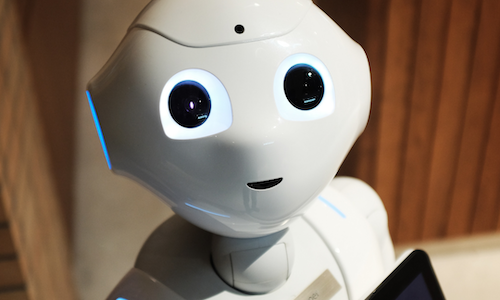Robots already help humans. This is obvious for those who work around industrial robots in factories and warehouses. But think about the many types of automation that you may encounter throughout the day.
Automatic doors, conveyor belts, and self-checkouts at the grocery store are helpful forms of automation.
Robotic vacuum cleaners, autonomous lawnmowers, and dishwashers in your home simplify domestic tasks, add convenience, and they can improve your quality of life.
However, there is the fear that robots will replace the need for human workers. This is an old fear that has yet to be actualized. While many professions that once depended on manual labor are now performed solely by machines, the workforce has merely been displaced rather than replaced.
We don’t have droves of unemployable human workers. Instead, people can focus on more enjoyable and more meaningful types of work.
Still, people worry that technology will eventually render laborers obsolete. Toyota, a global leader in manufacturing and technological innovation imagines a future where robots make people better rather than replace them.
Designing robots to enhance human workers
Toyota Research Institute is focusing on AI and robotics technology geared towards “amplifying, rather than replacing human beings”.
This is an interesting concept; it highlights the distinction between simply automating tasks so we don’t have to do them and designing robots that enhance our ability to perform tasks.
This focus on creating robots that improve the abilities of people is motivated by Japan’s aging population. There is a shortage of young workers that can help take care of Japan’s aging population. Automation could be the answer.
This is the same principle behind cobots. Collaborative robots are intended to improve capabilities or workers rather than replace or displace employees.
Robots can’t replace people, cobots can’t replace robots
Collaborative robots are great, but we still need industrial machinery. Robots that enhance the abilities of humans can benefit society at home as well as work, but manufacturing depends on industrial robots.
We can help make sure that your industrial motion control system keeps running the way that it’s supposed to run. Call 479-422-0390 for Indramat service, support, or repair.
